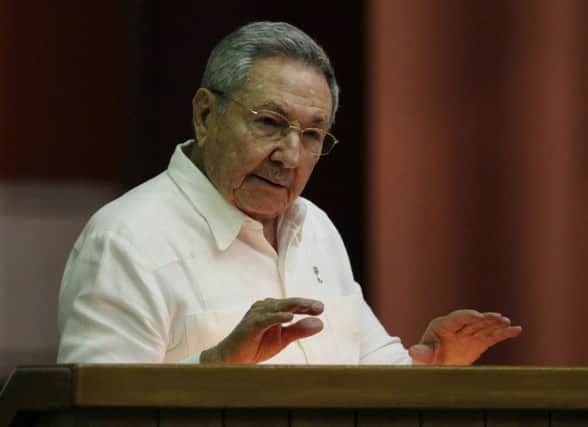Raul Castro urges patience over Cuban economy


Days after Cuba downgraded its 2014 economic growth forecast by nearly a percentage point, Mr Castro told parliament during the first of its twice-annual regular sessions that the reforms “have great complexity but are advancing” at the necessary pace.
“This process, to be successful, must be conducted with the appropriate gradualness and be accompanied by the permanent control of different party and government structures at all levels,” he said in a speech lasting 25 minutes.
Advertisement
Hide AdAdvertisement
Hide Ad“Gradualness is not a whim, much less a desire to delay the changes that we must make,” he added. “On the contrary, it is about a need to ensure order and avoid gaps that would lead us directly to mistakes that distort the proposed objectives.”
Foreign journalists were not allowed access to the one-day session at a convention centre in western Havana. His comments were broadcast later on state TV.
Mr Castro urged Cuban workers, who earn the equivalent of £12 a month, to work “hard and optimistically, to turn this around and guarantee growth rates that will make socialist development possible.”
But he failed to unveil new strategies at the day-long meeting of 612 legislators and other senior officials.
The government has said it plans to end an unpopular dual currency system, but has not given a timeframe for doing so.
Vice-president Marino Murillo, Mr Castro’s reforms czar, said a nascent project to eliminate Cuba’s unique dual currency system is continuing and warned islanders that monetary unification itself will not increase their purchasing power.
Cuba’s economy minister announced at the end of June that officials were lowering their GDP growth expectations to 1.4 per cent for the year, down from a previous forecast of 2.2 per cent for 2014 and from 2.7 growth recorded last year.
Mr Castro and other officials say the reforms do not amount to an embrace of capitalism, but are rather an “update” of Cuba’s socialist model to survive in the 21st century global economy.
Advertisement
Hide AdAdvertisement
Hide AdCuba has decentralised state-owned enterprises, legalised home and used car sales and let hundreds of thousands of people open or work for small businesses in the private sector.
Official media reported that agriculture minister Gustavo Rodriguez said Cuba’s food imports have reached $2 billion a year, but the government believes the island could produce 60 per cent of that.
Cuba’s parliament typically meets twice a year, once in the summer and again in December.
Cuba’s economy in 2013 grew by 2.7 per cent, below the official target of 3.6 per cent.
Havana blamed the lower growth forecasts on “adverse” economic conditions, including fewer than expected funds sent to its citizens from their relatives overseas.
The economy minister said at a recent council of ministers meeting that growth in Cuba was just 0.6 per cent for the first half of the year.